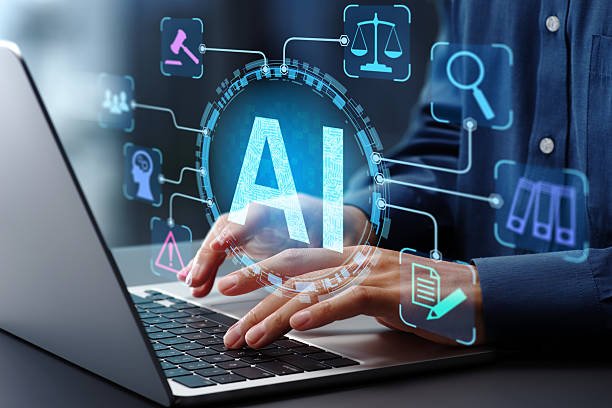Research Topics Related to Artificial Intelligence in Education
Artificial Intelligence (AI) is transforming the educational landscape by enhancing teaching, learning, assessment, and administration. From adaptive learning systems to intelligent tutoring and data-driven insights, AI in education has opened countless opportunities for innovation and research.
This blog post explores well-classified and detailed research topics related to Artificial Intelligence in Education, helping students, educators, and researchers identify key areas of interest for impactful studies.
What Is Artificial Intelligence in Education?
Artificial Intelligence in education refers to the use of machine learning, natural language processing, neural networks, and other AI technologies to improve the educational experience. It helps personalize learning, automate administrative tasks, and provide intelligent feedback systems that adapt to individual learners’ needs.
Examples of AI applications in education include:
- Intelligent Tutoring Systems (ITS)
- Automated Essay Scoring Tools
- Adaptive Learning Platforms
- Chatbots for Student Support
- Predictive Analytics for Student Performance
List of Research Topics Related to Artificial Intelligence in Education
Below are categorized and well-explained research topic ideas for students and researchers interested in AI applications within the education sector.
1. AI in Personalized Learning
- Development of adaptive learning models for individualized instruction.
- The effectiveness of AI-driven learning analytics in predicting student needs.
- How machine learning improves personalized learning experiences in virtual classrooms.
- Comparison of AI-based personalized learning versus traditional teaching approaches.
- Ethical implications of personalization and data tracking in education.
2. Intelligent Tutoring Systems (ITS)
- The role of ITS in enhancing learning outcomes for STEM education.
- Designing AI-powered tutors for language learning and writing improvement.
- Evaluating the effectiveness of AI tutoring in remote learning environments.
- Natural language processing in developing conversational learning systems.
- Integration of emotional intelligence in AI tutors to improve student engagement.
3. Assessment and Feedback Using AI
- AI-based automated grading systems and their reliability in academic evaluation.
- Sentiment analysis for evaluating student feedback on courses.
- Machine learning algorithms for detecting plagiarism and academic dishonesty.
- The impact of automated essay scoring on academic fairness and accuracy.
- Predictive analytics for identifying at-risk students before examination periods.
4. AI in Educational Management and Administration
- AI tools for automating administrative decision-making in higher education.
- Predictive systems for student retention and dropout prevention.
- AI-based resource allocation and scheduling optimization in universities.
- Role of AI in enhancing student admissions and recruitment strategies.
- Data privacy and security issues in AI-driven school management systems.
5. AI for Special Education and Accessibility
- AI-powered assistive technologies for students with disabilities.
- Speech and language recognition tools for learners with communication challenges.
- AI’s role in inclusive education and accessibility enhancement.
- Designing adaptive interfaces for visually or hearing-impaired learners.
- Evaluating the effectiveness of AI-based reading aids for dyslexic students.
6. AI in Educational Data Analytics
- Using big data and AI to analyze student learning behaviors.
- Predictive models for assessing institutional performance and student success.
- Real-time learning analytics dashboards powered by AI.
- Role of machine learning in improving online course design.
- Privacy-preserving data mining in educational datasets.
7. Ethical and Social Implications of AI in Education
- Ethical concerns of AI surveillance in virtual classrooms.
- Bias and fairness issues in AI-driven grading systems.
- Impact of AI on teacher autonomy and employment.
- Student data privacy in AI-based learning environments.
- Balancing automation and human interaction in education.
8. Emerging Technologies and AI Integration
- Combining AI and virtual reality for immersive education.
- Blockchain and AI for secure credential verification in academia.
- Role of generative AI in creating personalized educational content.
- Integration of chatbots in e-learning and student support systems.
- AI-enhanced gamification for improving motivation and learning outcomes.
Importance of Research in AI and Education
Research in Artificial Intelligence and Education is vital because it:
- Promotes data-driven decision-making in education systems.
- Enhances student engagement and learning personalization.
- Improves assessment accuracy and feedback quality.
- Reduces administrative workload through automation.
- Helps create inclusive and equitable learning environments.
As technology continues to evolve, research in this field will play a major role in shaping future classrooms and educational policies worldwide.
Conclusion
Artificial Intelligence in education offers vast research opportunities that address key educational challenges while transforming how people teach and learn. From personalized learning to data analytics and inclusion, the potential of AI is boundless. Researchers exploring these topics will contribute significantly to building smarter, more equitable, and effective educational systems.
FAQs
1. What is the role of AI in education?
AI helps in automating tasks, personalizing learning experiences, analyzing student performance, and providing intelligent tutoring systems that support both learners and teachers.
2. How does AI improve learning outcomes?
Through adaptive learning systems and predictive analytics, AI identifies student strengths and weaknesses, offering personalized content that improves engagement and retention.
3. What are some ethical challenges of using AI in education?
Ethical challenges include data privacy concerns, algorithmic bias, job displacement for educators, and the over-reliance on automated systems.
4. Can AI replace teachers in the future?
AI cannot replace teachers but can complement their efforts by handling repetitive tasks, providing insights, and supporting personalized learning. Human empathy and mentorship remain irreplaceable.
5. What are the best AI tools currently used in education?
Popular AI tools include Duolingo, Coursera’s adaptive recommendations, Google Classroom AI extensions, and ChatGPT-powered tutoring systems.
ALSO READ: Research Topics Related to Sustainable Development







One Comment